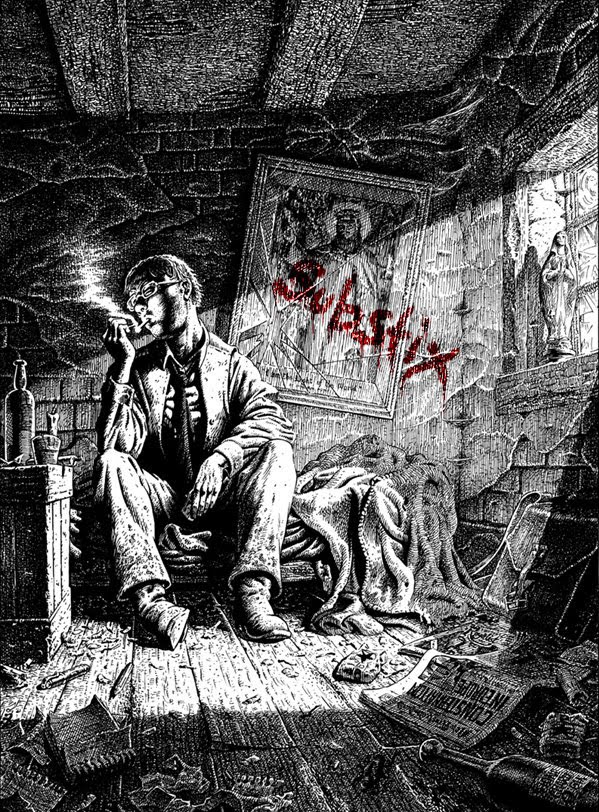 I tried to pare this down, I really did, but it couldn't be done with a clean conscience. So here you have a 10-song sampler of the work of Victor Lovera, a Nashville-based songwriter and muse/sometime creative partner of R. Stevie Moore, who, as anybody who is familiar with this WEBPAGE or its author will know, is by far my favourite one-man musical tornado.
I tried to pare this down, I really did, but it couldn't be done with a clean conscience. So here you have a 10-song sampler of the work of Victor Lovera, a Nashville-based songwriter and muse/sometime creative partner of R. Stevie Moore, who, as anybody who is familiar with this WEBPAGE or its author will know, is by far my favourite one-man musical tornado.
Lovera was, from the evidence on this Moore-compiled double album of his songs, an arch-druid of mostly contemplative and personal minor-chord songs; at least in his later recordings chronicled here - he began with Moore in possibly Nashville's only hard rock/glam/Zappa-influenced group Ethos and could do a mean power pop.
I have never truly been a connoisseur of singer-songwriters, so it takes something really special to get me hooked (here the awkward, uninformed attempt at musical analysis); and Victor had a great ear for a satisfying chord change and a calming voice, paired with a feel for classic, universal lovesong lyrics and, yes, a goddamned sense of humour.
His more playful uptempo numbers are good fun, whipping out the assisted high harmonies, but for me these home recordings will always recall a sense of kinship, sorrow and mystery; seen, as Lovera is by the limited Youtube audience, as a disheveled and peripheral figure in the RSM lifelense - a streaming artistic audiovisual feed of sorts stretching back some 35 years. This feeling can be summarised neatly in the multi-part camcorder document of Lovera's visit to Moore's New Jersey home in 1991 - it was the song 'Gleason', below, which first caught my attention.
I believe that these days, amongst all the web-paradigms, they'd call this user-generated content. But there is something sincere and candid in the almost unselfconscious home tapes of the pre-spiderwebs generations.
Lovera's maudlin demeanour, which I am speculatively romanticizing, is no doubt partially explained by the unfortunate fact that he was a sufferer from Crohn's disease, which tragically claimed his life in '98. In place of any sense of injustice at the non-exposure of thousands of such worthy artists (LoveraMoore foremost), I merely count myself fortunate to have encountered these people and their music in my virtual travels. Could VicLo ever have imagined that people as far flung as the grey skies of Norwich UK would be shuffling around with his songs on their iSplod on an autumn's day?

